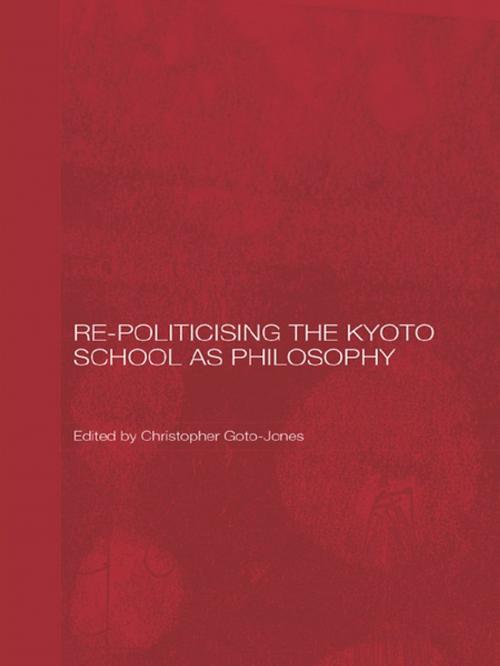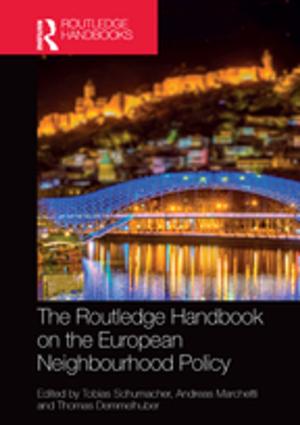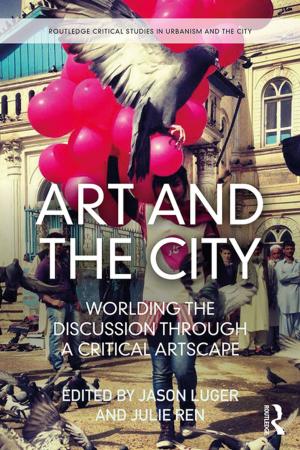Re-Politicising the Kyoto School as Philosophy
Nonfiction, History, Asian, Japan, Religion & Spirituality, Philosophy, Political, Social & Cultural Studies, Political Science, Politics, History & Theory| Author: | ISBN: | 9781134193370 | |
| Publisher: | Taylor and Francis | Publication: | December 12, 2007 |
| Imprint: | Routledge | Language: | English |
| Author: | |
| ISBN: | 9781134193370 |
| Publisher: | Taylor and Francis |
| Publication: | December 12, 2007 |
| Imprint: | Routledge |
| Language: | English |
In Re-Politicising the Kyoto School as Philosophy Christopher Goto-Jones contends that existing approaches to the controversial Kyoto School fail to take it seriously as a school of philosophy, instead focussing on historical debates about the alleged complicity of the School’s members with the imperialist regime in Japan.
The essays in this book take a new approach to the subject, engaging substantially with the philosophical texts of members of the Kyoto School, and demonstrating that the school developed serious and sophisticated positions on many of the perennial questions that lie at the heart of political philosophy. These positions are innovative and fresh, and are of value to political philosophy today, as well as to intellectual historians of Japan. In particular, the book is structured around the various ways in which we might locate the Kyoto School in mainstream traditions of political thought, and the insights offered by the School about the core concepts in political philosophy. In this way the book re-politicises the Kyoto School.
With chapters written by many leading scholars in the field, and representing a contribution to political thought as well as the intellectual history of Japan, this book will appeal to students and scholars of Japanese studies, philosophy and political thought.
In Re-Politicising the Kyoto School as Philosophy Christopher Goto-Jones contends that existing approaches to the controversial Kyoto School fail to take it seriously as a school of philosophy, instead focussing on historical debates about the alleged complicity of the School’s members with the imperialist regime in Japan.
The essays in this book take a new approach to the subject, engaging substantially with the philosophical texts of members of the Kyoto School, and demonstrating that the school developed serious and sophisticated positions on many of the perennial questions that lie at the heart of political philosophy. These positions are innovative and fresh, and are of value to political philosophy today, as well as to intellectual historians of Japan. In particular, the book is structured around the various ways in which we might locate the Kyoto School in mainstream traditions of political thought, and the insights offered by the School about the core concepts in political philosophy. In this way the book re-politicises the Kyoto School.
With chapters written by many leading scholars in the field, and representing a contribution to political thought as well as the intellectual history of Japan, this book will appeal to students and scholars of Japanese studies, philosophy and political thought.















